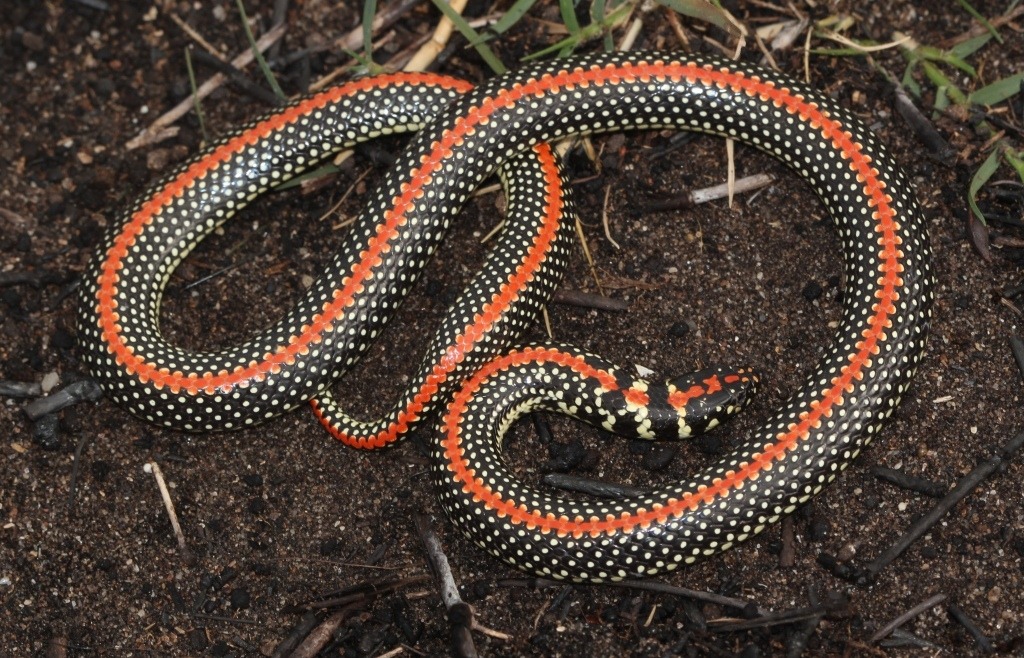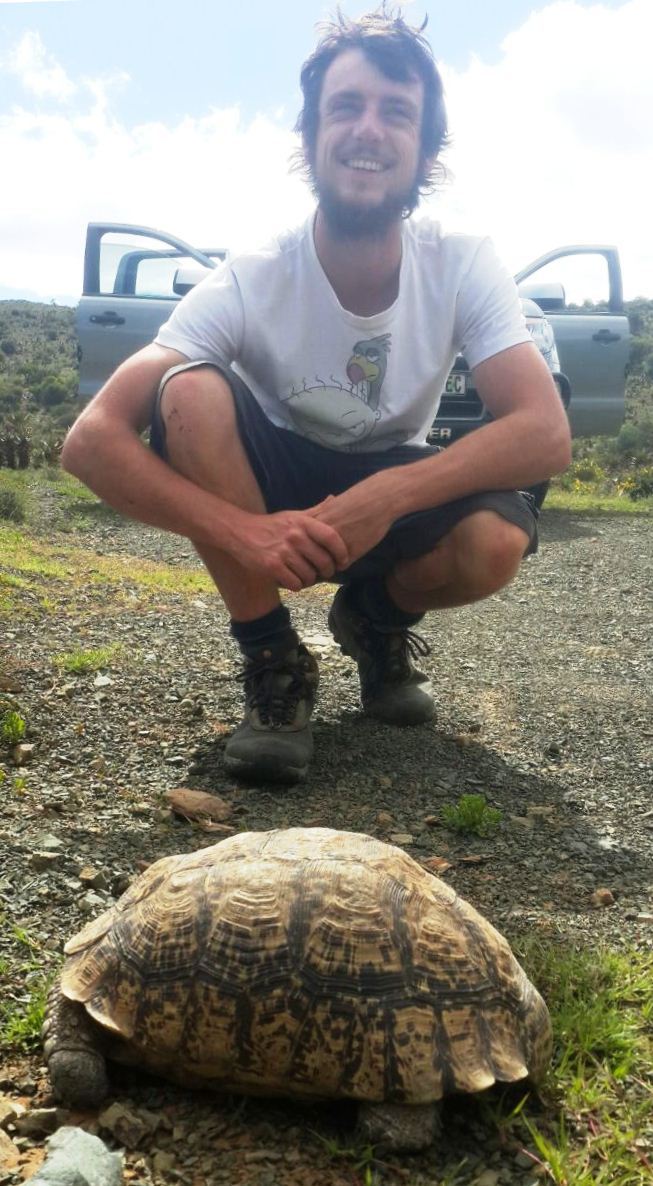Observation of the Week, 11/9/17

Our (belated) Observation of the Week is the first spotted harlequin snake post to iNaturalist! Seen in South Africa by @alexanderr.
This Observation of the Week is actually for two weeks ago, but observer Alex Rebelo was out in the field and we weren’t able to connect until this week. Growing up “with a botanist as a father and an ecologist as a mother in South Africa,” Alex says he “was out in the field so often and could gain insight from my parents, [so] I became interested in nature.” He earned a Masters of Science in Biology with a special interest in herpetology, and is currently an intern at Bayworld Museum in Port Elizabeth, “mainly to gain experience with Werner Conradie and the herpetology collection. I'm interested in Biogeography and Ecology, not quite sure about Taxonomy yet.”
On a July weekend this year, Alex “decided to go scratch around in a nearby Nature Reserve in Port Elizabeth,” which is where he found the spotted harlequin snake under a rock. “I wasn't expecting to find it and it was a pretty surprise, luckily very chilled out so I could get some pictures.”
Spotted harlequin snakes, which are endemic to southern Africa, are semi-fossorial and love to dig and burrow in soft sand and soil, so looking under rocks is commonly how they’re found. They specialize in eating snakes and small lizards, especially legless skinks. The snakes do possess venom but are not known to be aggressive at all, and humans who have been bitten usually suffer headaches and localized swelling.

“I use Citizen Science to contribute towards Conservation and Science, but also acknowledge its value to education and public interest,” says Alex, above. “I have used Citizen Science distribution data and it is very valuable (for biogeography and climate change monitoring and others), especially in an era when Scientists/taxonomists do not go out into the field and collect specimens. It forms a major part of Red List Assessment criteria, and distribution data is sorely lacking for many species.”
- by Tony Iwane
- Here’s a nice little short video of a spotted harlequin snake in the wild.
- In Afrikaans, it’s called Gespikkelde Harlekynslang.





Comentários
Adicionar um Comentário